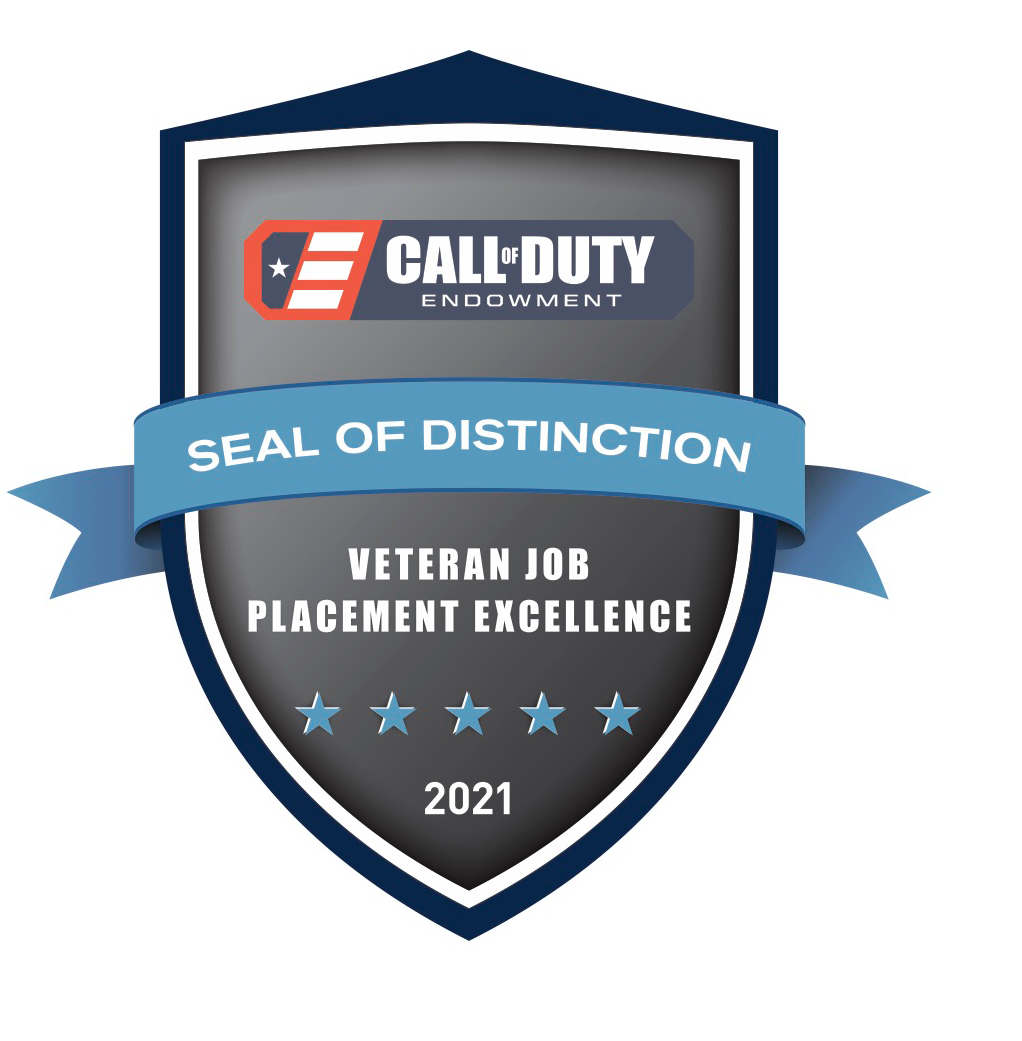Keep Calm and Search On: Navigating the Modern Job Market
If you’re a Veteran or Military Spouse in the market for a new job, you know that the process can be lengthy and complex. Anyone who remembers the days of hand-delivering a paper resume to an actual building, and going through a single interview, might be in for a surprise - looking for a job may now feel like a full-time job in itself. While there’s no secret code to unlock a successful job search, there are many things you can do to boost your chances of success.
Rather than getting overwhelmed by what’s ahead, break down the necessary steps and approach them in their proper order. For service members looking at separation in the next year or less, now is the time to start putting together a plan. Evan Grabell, a retiring Lieutenant Commander in the U.S. Air Force and current American Corporate Partners Protégé, flags the importance of getting your command’s buy-in from the jump.
“Plan ahead, and let them know what you’ll be doing and when,” especially if you’re in a senior leadership position, says Grabell, adding that junior enlisted members might have more flexibility in this regard. Any free time in your regular work schedule can be an opportunity to attend webinars and virtual hiring events, like those put on by RecruitMilitary, and to familiarize yourself with best practices for applying.
Grabell says that with the proliferation of resources for Veterans, candidates should ask themselves, “What are the right resources that will support my transition?” For example, SkillBridge is a great program for many service members, but he couldn’t take advantage of it due to the six-month time commitment. Other programs may have specific timelines that don’t align with your separation date. By skipping those “must-dos” that don’t make sense for you, you can save precious time and stay focused on what’s truly important.
One step you can’t skip is nailing down some basics, like creating a strong master resume. Don’t forget that everything counts as experience, whether paid or unpaid. So include those volunteer positions or collaterals! There are many online services that can help you translate your experience into a great resume.
Once that is all squared away, give yourself a mental boost before submitting your first
Application. Completing a personal "brag sheet" lets you identify your strengths, what makes
you unique, and the many obstacles you’ve overcome to get to where you are now. You can also ask friends and family to share what traits they value most in you. And remember, just as employers have minimum requirements, so should you. Set aside time to identify what’s most important to you in a job, and don’t be afraid to apply those criteria in your search.
Once you’re ready to start applying, there are practicalities to consider. If you have dedicated job-search days, make sure you’re structuring them like standard workdays, whatever that looks like for you - and don’t forget to build in breaks. You wouldn’t work eight hours without eating, or force yourself to sit in front of your computer nonstop, so don’t get caught in that trap as you submit applications. Five-minute movement breaks are a great way to reset your mind and body to approach your tasks with renewed energy.
With the digitization of the job market and listings that attract hundreds of applicants, you’ll want to find ways to make yourself stand out. Your military experience is a valuable asset to employers, and it’s your job to communicate that in your application materials and your communications with the company.
Grabell’s ACP Mentor Anthony Navarrette, a retired Marine Corps officer and current Program Manager with Huntington Ingalls Industries, advises service members to “be assertive [without being aggressive], and lead from the position you’re in. Most people coming out of the military are equipped to do that.” Navarrette says anyone can compile a list of their
accomplishments, but authenticity and passion make you stand out. Create a strong narrative of your value within your resume, and take the extra step to send a personalized email or cover letter with your job applications.
Networking is another great way to get your name out there. While you’ve probably heard the recommendation to message professionals on LinkedIn or elsewhere, communicating your value isn’t just about cold outreach. Jenny Mitchell, an intelligence professional and longtime Military Spouse, found her current role through a pre-existing professional connection. She attributes her success to her professionalism and consistency in maintaining that relationship, and she encourages applicants to consider every interaction as an informal job interview.
If you’ve gotten this far and are thinking, “I’ve done all these things and still haven’t had any luck,” know that you’re not alone. The current job market is uniquely challenging, and you might face multiple rejections over many months before landing a great role. Grabell says it’s important to “embrace the suck” and to have activities that help you cope with stress, whether that’s going for a run, getting lost in a good show, or spending time with your family. Talking (or venting) to people in a similar situation also provides much-needed perspective and assurance that you’re not the only one experiencing these difficulties.
Service members, post-9/11 Veterans, and Active Duty Military Spouses who are job searching can all take advantage of American Corporate Partners’ no-cost, yearlong mentorship. “ACP was crucial to my success,” says Grabell, who recently secured a civilian role as he prepares to retire from the Air Force. You can apply for the program at any point along your journey, and your Mentor will help you navigate professional goals, the job search, and even stress management. Jumpstart your progress today with this valuable resource!











